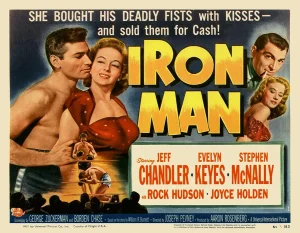
What Is the Moneyball (2011 film) About?
“Moneyball” is a 2011 biographical sports drama film directed by Bennett Miller and based on the 2003 non-fiction book “Moneyball: The Art of Winning an Unfair Game” by Michael Lewis. The film tells the story of Billy Beane, the general manager of the Oakland Athletics baseball team, and his revolutionary approach to building a competitive team with limited resources.
The film centers around Beane, portrayed by Brad Pitt, as he struggles to assemble a winning team with a significantly smaller budget than other Major League Baseball (MLB) teams. Faced with the departure of star players due to financial constraints, Beane teams up with Peter Brand (played by Jonah Hill), an economics graduate with a unique approach to evaluating players’ statistical performance.
Together, Beane and Brand develop a strategy known as “Moneyball,” which focuses on using advanced statistical analysis, known as sabermetrics, to identify undervalued players who possess specific skills that contribute to winning games. Rather than relying on traditional scouting methods and subjective assessments, they use data-driven decision-making to build a competitive team within their budgetary constraints.
Despite facing skepticism and resistance from traditionalists within the baseball establishment, Beane and Brand’s unconventional approach yields positive results. The team begins to win games and defy expectations, sparking a revolution in how baseball teams evaluate and recruit players.
“Moneyball” explores themes of innovation, resilience, and the pursuit of success against the odds. It highlights the importance of thinking outside the box, challenging conventional wisdom, and embracing new approaches to achieve goals. The film also delves into Beane’s personal journey, including his struggles with the pressures of the baseball industry and his desire to prove himself as a successful general manager.
Overall, “Moneyball” is a compelling sports drama that offers insight into the intersection of sports, economics, and analytics, while also providing a character-driven narrative that resonates with audiences.
Reasons to Watch It
“Moneyball” stands out for its innovative storytelling, delving into the unconventional approach of Billy Beane in building a successful baseball team through statistical analysis, while its stellar cast, compelling characters, and exploration of universal themes make it a critically acclaimed and captivating film for audiences of all interests. With its underdog narrative, insight into sports analytics, and numerous accolades, “Moneyball” delivers an inspiring and thought-provoking cinematic experience that resonates far beyond the realm of sports.
- Innovative Storytelling:
- The film explores the real-life story of Billy Beane’s unconventional approach to building a winning baseball team using statistical analysis. It offers a fresh and innovative perspective on the world of sports management, making it a captivating watch for fans of both sports and business.
- Stellar Cast:
- “Moneyball” features an exceptional cast led by Brad Pitt, who delivers a nuanced and charismatic performance as Billy Beane. Jonah Hill, Philip Seymour Hoffman, and other talented actors also contribute strong performances, bringing depth and authenticity to their roles.
- Compelling Characters:
- The film’s characters are complex and multi-dimensional, each grappling with their own challenges and motivations. Audiences are drawn into their stories and relationships, rooting for their successes and empathizing with their struggles.
- Underdog Story:
- “Moneyball” tells the story of an underdog team defying the odds and challenging the status quo in professional sports. It’s a tale of perseverance, resilience, and the pursuit of excellence against formidable obstacles, making it both inspiring and relatable.
- Insight into Sports Analytics:
- The film provides insight into the world of sports analytics and the use of advanced statistical analysis in baseball. It sheds light on the evolution of the game and the impact of data-driven decision-making on player evaluation, team strategy, and the overall dynamics of professional sports.
- Universal Themes:
- Beyond its sports-centric narrative, “Moneyball” explores universal themes such as ambition, loyalty, and the quest for self-validation. It offers valuable lessons about leadership, innovation, and embracing change in pursuit of success.
- Critically Acclaimed:
- “Moneyball” received widespread critical acclaim upon its release, earning multiple Academy Award nominations, including Best Picture. Its accolades and positive reviews attest to its quality and significance as a film worth watching.
Overall, “Moneyball” is a thought-provoking and emotionally resonant film that appeals to a wide range of audiences. Whether you’re a sports fan, a lover of compelling storytelling, or simply seeking an inspiring underdog tale, “Moneyball” offers something for everyone.
Is the Movie a Real or Fictional Story?
“Moneyball” is based on a true story. It depicts the real-life experiences of Billy Beane, the general manager of the Oakland Athletics baseball team, and his innovative approach to building a competitive team with limited resources. While the film takes some artistic liberties in its portrayal of events and characters, it is grounded in the reality of Beane’s pioneering use of sabermetrics and data-driven decision-making in Major League Baseball. Thus, while certain elements may be dramatized for cinematic effect, the core story of “Moneyball” is based on actual events and real people.
| Aspect | Description |
|---|---|
| Story Basis | “Moneyball” is based on a true story, depicting the real-life experiences of Billy Beane, the general manager of the Oakland Athletics baseball team, and his innovative approach to building a competitive team with limited resources. |
| Main Character | Billy Beane, portrayed by Brad Pitt, is the central figure in the film, representing the real-life general manager of the Oakland Athletics. |
| Approach | The film showcases Beane’s pioneering use of sabermetrics and data-driven decision-making in Major League Baseball, which challenged traditional scouting methods and revolutionized team management strategies. |
| Artistic Liberties | While “Moneyball” takes some artistic liberties in its portrayal of events and characters, it remains grounded in the reality of Beane’s innovative approach to team building. Certain elements may be dramatized for cinematic effect, but the core story is based on actual events and real people. |
| Dramatization vs. Reality | Although certain aspects of the film may be dramatized, the core narrative remains faithful to the real-life challenges and successes experienced by Billy Beane and the Oakland Athletics during the 2002 MLB season. |
| Authenticity | Despite the cinematic interpretation, “Moneyball” offers an authentic glimpse into the world of baseball management and the transformative impact of data analytics in sports, providing insight into the complexities of building a winning team under resource constraints. |
| Reception and Impact | The film received critical acclaim and garnered multiple award nominations, reflecting its impact and resonance with audiences beyond the realm of sports. Its success underscores the enduring appeal of its narrative and themes. |
Is It Critically Panned or Acclaimed?
“Moneyball” was critically acclaimed upon its release. It received widespread praise from critics and audiences alike for its engaging storytelling, strong performances, and unique approach to the sports genre. The film holds a favorable rating on review aggregator websites such as Rotten Tomatoes and Metacritic, with many critics lauding it as one of the best sports films of its time.
Critics particularly praised Brad Pitt’s performance as Billy Beane, as well as the film’s intelligent script, direction, and thematic depth. Additionally, “Moneyball” was nominated for multiple Academy Awards, including Best Picture, Best Actor for Brad Pitt, Best Supporting Actor for Jonah Hill, and Best Adapted Screenplay for Aaron Sorkin and Steven Zaillian, further highlighting its critical acclaim and recognition.
Overall, “Moneyball” is widely regarded as a standout film in the sports genre, earning praise for its innovative storytelling and compelling portrayal of real-life events.
| Aspect | Description |
|---|---|
| Critical Acclaim | “Moneyball” was critically acclaimed upon its release, receiving widespread praise from both critics and audiences for its engaging storytelling, strong performances, and unique approach to the sports genre. |
| Reception on Review Aggregator Websites | The film holds a favorable rating on review aggregator websites such as Rotten Tomatoes and Metacritic, reflecting its positive reception among critics and viewers. |
| Critical Praise | Critics particularly praised Brad Pitt’s performance as Billy Beane, the film’s intelligent script, direction, and thematic depth. “Moneyball” was lauded as one of the best sports films of its time. |
| Award Nominations | “Moneyball” received multiple Academy Award nominations, including Best Picture, Best Actor for Brad Pitt, Best Supporting Actor for Jonah Hill, and Best Adapted Screenplay for Aaron Sorkin and Steven Zaillian. |
| Recognition | The film’s nominations and critical acclaim underscore its recognition as a standout in the sports genre, earning praise for its innovative storytelling and compelling portrayal of real-life events. |
Human Elements of the Movie
The human element in “Moneyball” is a crucial aspect that adds depth and emotional resonance to the film. Despite being centered around baseball statistics and data-driven decision-making, the movie doesn’t lose sight of the personal and emotional dimensions of the game. Here are a few key aspects of the human element in “Moneyball”:
- Billy Beane’s Personal Struggles:
- Brad Pitt’s portrayal of Billy Beane brings out the personal struggles and challenges faced by the general manager. The film explores Beane’s internal conflicts, the pressure to succeed, and the emotional toll of managing a team with limited resources.
- Players’ Stories:
- “Moneyball” introduces viewers to the individual stories of the players who make up the Oakland Athletics. It highlights the human side of these athletes, their aspirations, and the impact of Beane’s decisions on their careers and lives.
- Resistance to Change:
- The film depicts the resistance and skepticism faced by Beane and his assistant, Peter Brand, as they introduce a new, data-centric approach to baseball. The human element is evident in the conflicts arising from the clash between traditional scouting methods and the innovative strategy they are trying to implement.
- Relationships within the Team:
- “Moneyball” explores the dynamics and relationships among the players, coaches, and management. It shows how teamwork, camaraderie, and personal connections contribute to the success of the team on and off the field.
- Impact on Careers:
- The decisions made by Beane have profound effects on the careers of the players, demonstrating the human consequences of strategic choices in the world of professional sports.
Overall, the human element in “Moneyball” adds emotional weight to the film, making it more than just a story about statistics and baseball strategy. It allows the audience to connect with the characters on a personal level and underscores the broader themes of perseverance, resilience, and the human experience within the competitive world of sports.
What Does the Movie Explore?
“Moneyball” explores several themes, making it more than just a sports movie. Here are some key aspects that the film delves into:
- Innovation in Sports Management:
- The movie explores the revolutionary approach to baseball team management introduced by Billy Beane and his use of sabermetrics. This statistical analysis of player performance challenges traditional scouting methods and aims to find undervalued players based on objective data.
- Data-Driven Decision-Making:
- “Moneyball” emphasizes the increasing role of data and analytics in decision-making, not only in sports but also in broader contexts. It showcases how statistical insights can be used to gain a competitive advantage in team sports, a concept that has since become more prevalent in various industries.
- Underdog Story:
- The film tells the underdog story of the Oakland Athletics, a team with limited financial resources competing against wealthier franchises. It explores the challenges faced by Beane and his team as they attempt to challenge the established norms and compete at the highest level.
- Human Element in Sports:
- Despite the focus on statistics and strategy, “Moneyball” doesn’t forget the human element in sports. It portrays the personal struggles, relationships, and emotions of the players, coaches, and management, highlighting the impact of decisions on individuals within the organization.
- Adaptability and Change:
- The movie underscores the challenges of introducing innovation and change in a traditional and conservative environment. Beane faces resistance and skepticism from within the baseball community as he tries to implement a data-driven strategy.
- Economic Disparities in Sports:
- “Moneyball” touches on the economic disparities in professional sports, particularly in baseball, where teams with larger budgets often have a competitive advantage. The film shows how a creative and analytical approach can level the playing field to some extent.
- Leadership and Risk-Taking:
- The character of Billy Beane exemplifies leadership and risk-taking. The film explores the decisions and risks he takes to challenge the status quo, make unconventional choices, and strive for success in a highly competitive environment.
In summary, “Moneyball” is a multi-layered film that explores innovation, data-driven decision-making, the human side of sports, and the challenges of challenging established norms in a highly traditional field. Its themes are not limited to baseball but have broader implications in business, leadership, and the pursuit of success against the odds.
Memorable Moments in the Movie
“Moneyball” is filled with memorable moments that capture the essence of the story and its characters. Some notable scenes include:
- The Opening Scene:
- The film begins with the sound of a bat hitting a ball, setting the tone for a baseball-centered narrative. This scene establishes the connection between the sport and the upcoming story.
- Billy Beane Meets Peter Brand:
- The initial meeting between Billy Beane (Brad Pitt) and Peter Brand (Jonah Hill) is crucial. Brand introduces Beane to the concept of sabermetrics and the idea of using data to build a competitive team, setting the stage for the film’s central theme.
- The Trade Deadline:
- The intense scenes leading up to the trade deadline showcase Beane’s efforts to acquire key players and make strategic moves to strengthen the team.
- The 20-Game Winning Streak:
- The film climaxes with the Oakland Athletics’ historic 20-game winning streak. The scenes during this period capture the excitement, tension, and celebration as the team achieves unprecedented success.
- Billy Beane’s Solitary Moments:
- Throughout the film, there are moments of reflection and solitude for Billy Beane, where the personal toll of the decisions he makes becomes evident. These scenes add depth to his character and provide insight into the emotional challenges of his role.
- Art Howe’s Resistance:
- The tension between Billy Beane and the team’s manager, Art Howe (played by Philip Seymour Hoffman), adds dramatic flair. Howe’s resistance to implementing Beane’s strategies creates conflict and reflects the challenges of introducing innovation in a traditional setting.
- The Final Scene:
- The film concludes with Billy Beane turning down a lucrative offer from the Boston Red Sox, choosing to stay with the Oakland Athletics. This decision reinforces the theme of loyalty and the personal journey of the protagonist.
Each of these moments contributes to the overall impact of “Moneyball,” creating a narrative that is both compelling and thought-provoking. Whether it’s the dramatic game sequences, the strategic discussions, or the quieter reflective moments, these scenes collectively make the film a memorable and engaging cinematic experience.
Streaming Platforms to Watch the Movie From
“Moneyball” is periodically available for streaming on platforms like Netflix, Amazon Prime Video, Hulu, and HBO Max, depending on your region. Alternatively, if it’s not included in subscription services, you can rent or purchase it digitally from platforms such as iTunes, Google Play Movies, Vudu, or YouTube Movies.
- Netflix:
- “Moneyball” is periodically available for streaming on Netflix in various regions. You can check the Netflix library in your country to see if it’s currently available.
- Amazon Prime Video:
- Amazon Prime Video often includes “Moneyball” in its library for streaming. If you have an Amazon Prime subscription, you may be able to watch it at no additional cost. Alternatively, you can rent or purchase the movie on Amazon Prime Video.
- Hulu: ”
- Moneyball” has been available for streaming on Hulu in the past. While availability may vary, it’s worth checking the Hulu library to see if it’s currently included.
- HBO Max:
- Depending on your location, “Moneyball” may be available for streaming on HBO Max. HBO Max frequently features a diverse selection of films, including “Moneyball,” so you can check the platform’s library to see if it’s currently available.
- Other Rental or Purchase Platforms:
- If “Moneyball” isn’t available on subscription-based streaming services, you can rent or purchase it digitally from platforms like iTunes, Google Play Movies, Vudu, or YouTube Movies.
Please note that streaming availability may vary by region and change over time due to licensing agreements. It’s always a good idea to check the specific platform’s library or use a streaming search aggregator to find the most up-to-date information on where to watch “Moneyball” in your country.






